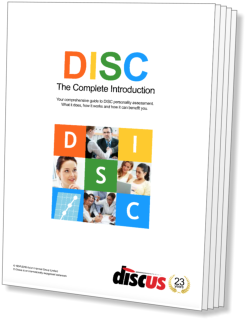Motivation
One of the most useful applications of the Style Card technique is in describing a person's motivators (and, correspondingly, their demotivators). This can help managers to adapt their style and approach to a particular individual. In a more specific sense, this information can also be useful in motivating an individual to choose a particular course of action.
Each of the four main types (Driver, Communicator, Planner and Analyst) have an associated set of motivators and demotivators, as outlined below.
|
|
Driver: Drivers are motivated by achievement and control. It is very important to them to feel that they are driving a situation (hence the name of the style) and they will consequently be more receptive if they feel in full control of a situation. Should they feel unduly pressured, they will be less likely to accept an idea, and they react particularly badly to direct orders, whatever their source. |
|
|
Communicator: As you might expect from the name of this style, positive communication is the main motivator for this type of person. They will wish to develop a real rapport with a person before reacting to specific ideas or proposals. Rejection is a factor that they find difficult to accept, and if they do not feel completely comfortable with someone (a rare situation for a confident person of this type) they will be far less likely to respond positively. |
|
|
Planner: Time is the main motivator of the Planning style. They dislike sudden change or interruption, and need time and patience to adapt to new situations. If they are forced into a position, they will react negatively - a more productive approach is to allow them to accommodate themselves to a suggestion in their own timescale. |
|
|
Analyst: Fact and detail are the factors that Analysts seek out. They need to be able to understand the implications and probable effects of a proposal before they can come to accept it, and this means a precise and methodical approach. Being forced to act without fully understanding a situation is a profound demotivator for people of this type. |
The four intermediate types, as you might expect, each combine the motivating factors of the two main styles between which they lie.
|
|
Assertive: Lying between the Driver and the Communicator, this type emphasises and extends the Driver's desire for control into the field of social relations. Not only will the Assertive individual wish to build a strong relationship in order to feel motivated, but they will also wish to feel that they hold a distinctly dominant position within that relationship. |
|
|
Open: Open styles combine elements from the Communicator and the Planner. This means that they will wish to take a patient, measured view of a situation, but they will also wish to maintain positive relations with others. This can lead to some potential problems as the Open individual tries to balance their own need for calm, long-term appraisal with other people's demands for action. |
|
|
Receptive: Receptive styles, incorporating elements of both the patient Planner and the factual Analyst, are especially reluctant to act without being entirely certain of their position. They need to feel that they are in command of all the facts, and that they can see all possible problems, before they can accept an idea or adapt effectively to a new situation. |
|
|
Controlled: Lying midway between the Driver and the Analyst, the Controlled type assumes an attitude of control, and will respond negatively to any perceived attempt to undermine this position. Unlike the pure Driver, however, they will tend to adopt a formal, structured approach, attempting to enforce their desires through rules and authority, rather than through the forcefulness of their approach. |

